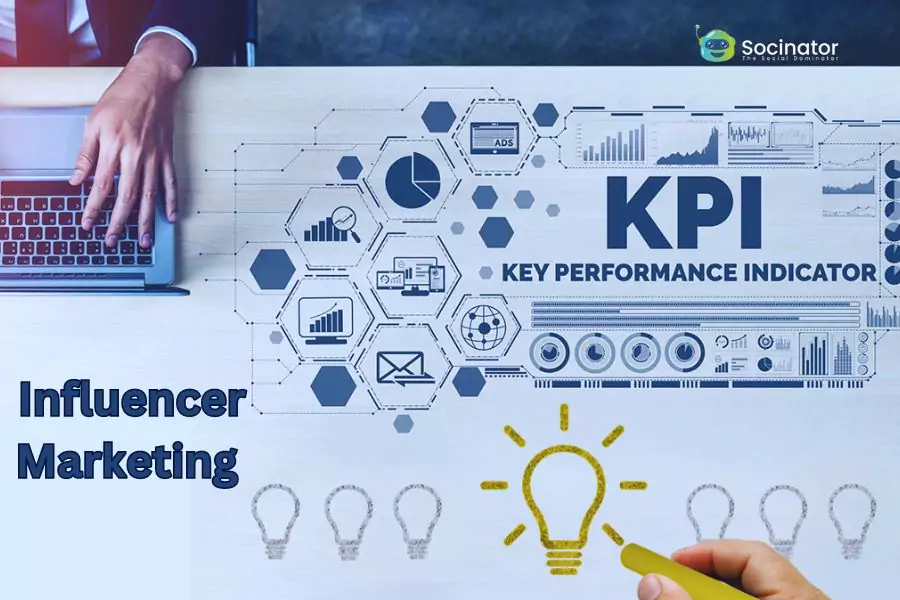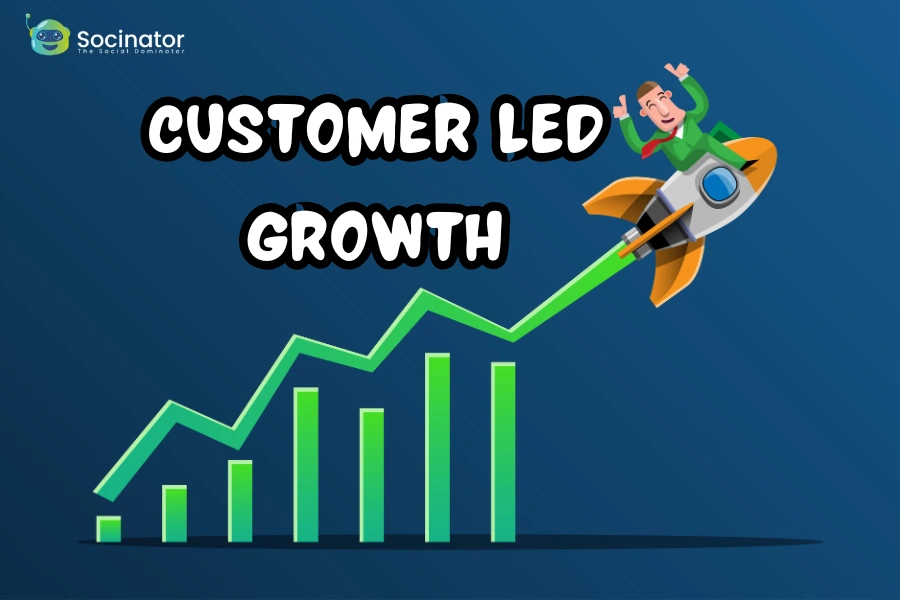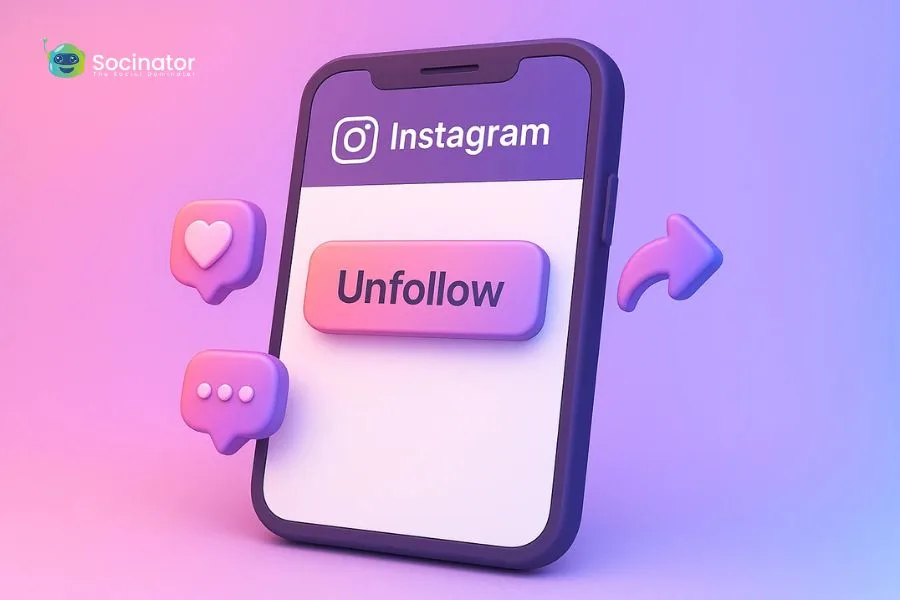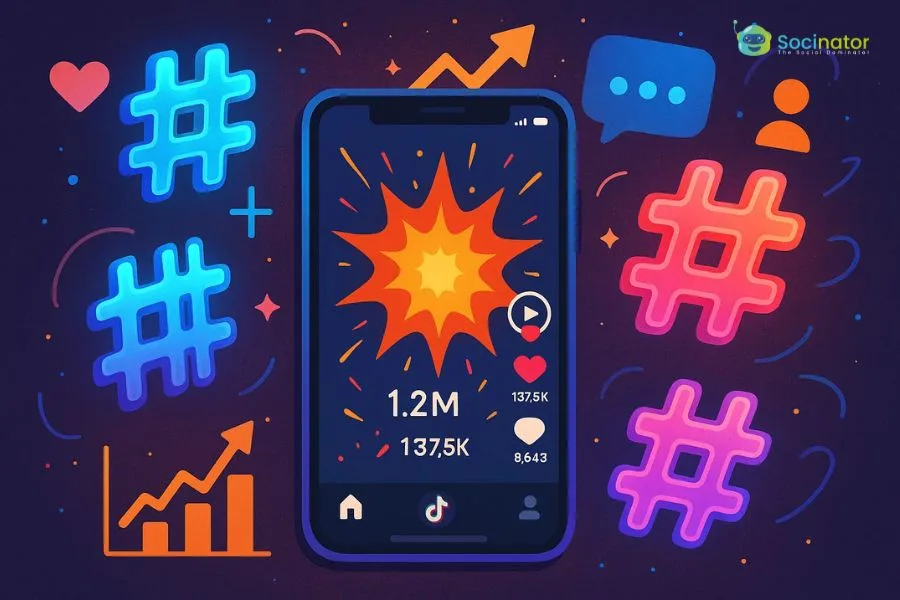Influencer campaigns have emerged as powerful tools for brands seeking to connect with their audiences on a deeper level. However, navigating the effectiveness of these campaigns requires more than just follower counts and likes. Utilizing the right Influencer Marketing KPI is crucial in this evaluation.
Key Performance Indicators (KPIs) are the crucial metrics that highlight the success and impact of influencer collaborations.
This blog reveals the top Influencer Marketing KPIs vital for measuring growth and maximizing ROI. From engagement rates to conversion metrics, understanding these benchmarks ensures strategic alignment and empowers brands to leverage influencers effectively in driving business objectives.
Join us as we explore KPIs for measuring influencer marketing for your upcoming campaign and how you can master them to unlock the full potential of your influencer marketing efforts.
Hit The Play Button To Listen to This Podcast:
What Is An Influencer Marketing KPI?
A KPI influencer marketing is a quantifiable metric that measures the effectiveness of an influencer marketing campaign. It helps assess campaign success, whether aimed at increasing brand visibility or driving sales. By monitoring and analyzing these social media KPIs, you gain insights into campaign performance, enabling informed decisions, optimizing strategies, and ensuring a solid return on investment (ROI).
Why Are KPIs Important In Influencer Marketing Campaigns?
Influencer marketing has become increasingly popular, with 93% of global marketers recognizing its effectiveness. Alongside its benefits, there are risks, as evidenced by companies collectively losing $1.38 billion due to investments in influencers with artificially inflated follower counts.
It underscores the critical importance of establishing (key performance indicators) KPI for influencer marketing campaigns. Without clear metrics for success, you risk engaging in collaborations that yield superficial engagement without actual revenue generation.
Benefits Of Measuring KPIs In Influencer Marketing
 Here are the key benefits of defining influencer marketing KPIs:
Here are the key benefits of defining influencer marketing KPIs:
Improves Performance Evaluation And ROI Assessment:
Establishing KPIs from the outset of your influencer collaborations allows for accurate analysis of marketing effectiveness. It includes tracking influencer marketing metrics such as follower growth, engagement quality, and revenue generated through the partnership. Monitoring these influencer marketing KPIs helps assess the campaign’s return on investment (ROI), evaluating its cost-effectiveness based on conversions, sales, website traffic, or social media engagement. Ultimately, KPIs empower data-driven decisions that influence- brand reach, reputation, and profitability.
Enables Optimization Of Influencer Campaigns And Collaboration With Suitable Influencers:
Measuring KPIs provides insights into campaign performance and audience reception. For instance, if your skincare brand’s influencer content doesn’t align with sustainable or chemical-free product messaging or if influencers focus on experimental makeup rather than your product benefits, KPIs, like reach impressions and audience demographics, reveal where adjustments are needed. This data-driven approach helps optimize content, target the right audience, and achieve desired outcomes by aligning with appropriate influencers.
Facilitates Comparison And Benchmarking Of Creators:
Tracking KPIs allows for effective evaluation and comparison of different influencer marketing efforts. Analyzing data across campaigns identifies successful strategies, trends, and best practices. This knowledge informs smarter resource allocation, strategic improvements, and realistic goal-setting for future campaigns. Moreover, identifying top-performing influencer marketing KPIs enables long-term partnerships that foster brand advocacy and customer loyalty among their followers.
Understanding these benefits underscores the importance of implementing robust KPI frameworks in influencer marketing strategies.
Tips For Choosing Which Influencer Marketing KPIs To Track
Consider these guidelines when selecting which influencer marketing KPIs to track:
- Define clear goals: Specify your objectives precisely to focus on obtaining relevant data that directly contributes to achieving your goals.
- Prioritize valuable metrics: Identify metrics that closely align with your platform and collaboration goals. This approach ensures you collect information essential for strategic planning.
- Utilize industry trends: Tap into current social media trends to expand your audience reach and enhance brand visibility, leveraging your influencer status to benefit your collaborator effectively.
Tools To Track And Measure Influencer Marketing KPIs
Tracking and measuring influencer marketing KPIs can be challenging, but powerful tools can assist in achieving your goals. These tools include Google Analytics, promo codes with custom trackable links, affiliate marketing software, social listening tools, hashtag monitoring tools, and more. The influencer marketing tools and methods commonly used to monitor campaign KPIs include:
Social Media Analytics Tools
Social media analytics tools encompass platforms like Facebook Insights and Instagram Insights and tools for extracting analytics from Twitter, LinkedIn, and YouTube. They provide detailed data on engagement, reach, impressions, follower growth, and other key metrics. These tools are essential for monitoring the effectiveness of your influencer marketing campaigns across various social media platforms.
To make this process easy there is one such tool that has access to over nine social media platforms within a single interface, and that is Socinator. Socinator’s robust analytics features help businesses optimize their social media strategies by providing actionable data for influencer marketing KPIs. It also helps marketers to make informed decisions and maximize engagement with target audiences.
Socintor: Social Media Automation Tool
 Socinator is a robust social media automation tool designed to streamline and enhance your social media management efforts. Whether you’re managing multiple accounts or aiming to boost engagement and visibility, Socinator offers a comprehensive suite of features to automate various tasks across various popular social platforms.
Socinator is a robust social media automation tool designed to streamline and enhance your social media management efforts. Whether you’re managing multiple accounts or aiming to boost engagement and visibility, Socinator offers a comprehensive suite of features to automate various tasks across various popular social platforms.
Socinator can significantly aid in influencer marketing by enhancing key performance indicators (KPIs) crucial for success in this field. Here’s how:
- Audience Engagement: Socinator automates interactions like likes, comments, and follows according to predefined criteria. It helps influencers maintain consistent engagement with their audience, which is essential for KPIs like engagement rate and audience growth.
- Automation Tool: The tool allows influencers to schedule and automate posts across multiple platforms. It ensures content reaches the audience at optimal times, boosting visibility and potentially increasing KPIs such as reach and impressions.
- Campaign Management: The Socinator facilitates the management of influencer marketing campaigns by automating tasks like content sharing, monitoring campaign performance, and adjusting strategies in real time. It helps influencers achieve KPIs related to campaign effectiveness and ROI.
- Analytics And Reporting: Socinator provides detailed analytics on post-performance, audience demographics, and engagement metrics. This data is crucial for influencers to measure KPIs like conversion rates, click-through rates (CTR), and overall campaign success.
- Compliance And Security: The Socinator helps influencers maintain compliance with platform guidelines and ensures account security through features like proxy support and safe automation practices. It protects their reputation and supports KPIs related to trust and credibility.
Socinator empowers influencers by optimizing their social media management processes, enhancing audience engagement, providing actionable insights, and supporting effective influencer marketing campaigns. By leveraging these capabilities, influencers can effectively improve their social media KPIs and achieve sustainable growth in their influencer marketing efforts.
Also Read:
Top 7 Social Media KPIs to Grow Your Business
New To Social Media KPIs? Here’s What You Need To Know
Top 5 Influencer Marketing KPIs To Track
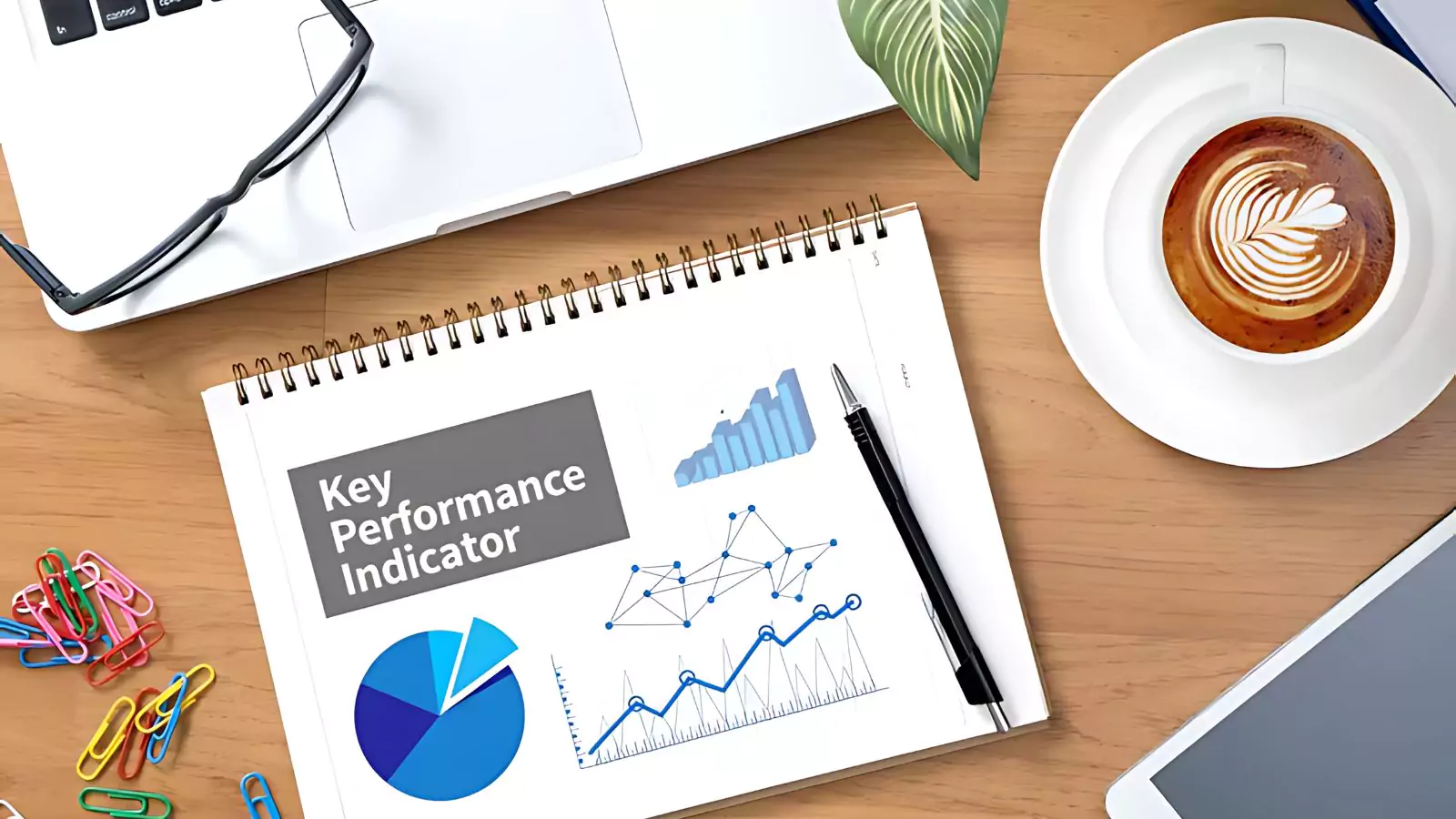 Here are the key categories of influencer marketing KPIs you should measure for your upcoming campaign:
Here are the key categories of influencer marketing KPIs you should measure for your upcoming campaign:
1. Brand Awareness & Brand Sentiment
Increasing brand awareness is often the primary goal of influencer marketing initiatives. Influencers who share similar values and possess substantial follower bases play a crucial role in introducing new audiences to your brand and establishing trust. Key metrics such as reach, impressions, audience growth, brand mentions, video views, and Google searches are essential for evaluating campaign effectiveness. Monitoring brand sentiment allows for understanding audience perceptions and alignment with brand values, fostering trust and positive relationships. Tracking these metrics provides valuable insights into audience engagement and the overall success of the campaign.
2. Social Engagement
Recent research reveals that influencers with follower counts ranging from 1000 to 5000 exhibit the highest engagement rates, averaging around 4.38%. In contrast, those with follower counts between 100,000 and 1,000,000 have lower engagement rates, approximately 1.06%. This data empowers companies to make informed decisions when selecting partners to enhance their brand.
Within the realm of social engagement, several key influencer marketing KPIs metrics warrant attention:
- Likes: While a simple click likes indicate initial interest and potential engagement.
- Comments: Brief notes from users reflect deeper engagement and interest in the content. However, meaningful comments provide more value than generic ones like greetings.
- Shares: Reposts and retweets serve as endorsements, signaling content success and indicating that users find it valuable enough to share with others.
Ultimately, these metrics show how followers engage with the content. Positive engagement through comments and shares signifies that the content resonates effectively with its audience.
3. Click-through Rate (CTR)
Click-through Rate (CTR) is a metric that indicates how frequently a potential customer clicks on a specific link in a sponsored post. Using tools such as Google Campaign Manager, you can assign custom links and UTM tags to track the performance of each influencer campaign individually.
Creating custom URLs for Instagram Stories, bios, and ads allows you to experiment and determine which types of content resonate best with your audience. Monitoring CTRs is essential because low engagement may indicate issues with messaging, call-to-action (CTA), or targeting effectiveness. Conversely, a high CTR indicates- that more users are visiting your website, potentially moving them closer to making a purchase.
4. Website Traffic
Traffic is a crucial metric in any digital marketing campaign, as it indicates how many people are actively engaging with your content. Understanding traffic provides insights into the campaign’s reach and overall effectiveness.
For example, an increase in traffic without a corresponding rise in conversions indicates potential issues on the landing page. Adjustments such as refining the landing page or conducting A/B tests on content and call-to-action buttons can help identify what resonates best with your audience.
Key metrics to track for traffic include:
- New visitors
- Total sessions
- Referral sources
- Total page views
- Time on site
These metrics offer valuable data on how users are discovering and interacting with your website, guiding optimization efforts to enhance campaign performance.
5. Conversions And Sales
Conversions and sales are pivotal metrics in assessing the effectiveness of any marketing campaign, including influencer marketing KPI. Depending on your objectives, conversions can include sales, subscriptions, downloads, or email sign-ups. Identifying which influencers, platforms, or content pieces drive the most conversions is crucial for optimizing future campaigns and maximizing conversion rates.
Here are key metrics to consider under conversions and sales:
- Leads And Opportunities: Tracking new leads generated from an influencer’s post provides insights into campaign reach and helps evaluate the effectiveness of influencer collaborations.
- Sales: Calculating revenue generated from converting prospects influenced by your influencer marketing efforts gives a clear financial impact assessment.
- Average Order Value (AOV): Understanding the average value of purchases made by an influencer’s followers through sponsored posts helps measure their contribution to your revenue stream. This data informs decisions on the frequency and compensation of influencer partnerships.
To measure conversions and sales effectively, utilize promo codes, affiliate links, and UTM links. These tools provide detailed insights into campaign performance, enabling strategic adjustments to enhance overall outcomes and profitability.
Wrapping Up
Monitoring the right Key Performance Indicators (KPIs) is crucial for evaluating the success of influencer marketing campaigns. Tools like Socinator can streamline this process by providing comprehensive analytics on engagement rates, reach, conversions, and brand sentiment. Using these insights, businesses can refine their strategies and improve their ROI from influencer collaborations.
Choosing the most relevant influencer marketing KPI ensures strategic decision-making and long-term campaign success.
FAQs
Q. What key performance indicators (KPIs) should you consider when choosing an influencer to collaborate with?
When choosing an influencer to collaborate with, it’s essential to measure specific KPIs that align with your objectives. These may include reach and impressions, engagement rates, follower growth, click-through rates, sales, and conversions. These metrics provide a comprehensive view of your influencer marketing campaign’s effectiveness.
Q. What defines a key performance indicator (KPI) for influencer marketing?
An influencer marketing KPI is a measurable metric that evaluates the performance and success of an influencer marketing campaign.
Q. What formula is used in influencer marketing calculations?
In influencer marketing, several formulas help measure campaign effectiveness:
- Calculate Leads: Audience Reached x Engagement rate.
- Calculate Conversions: Leads x Conversion rate.
- Calculate Revenue Generated: Conversions x Average order value.
- Calculate ROI(%): (RevenueGenerated−Totalcampaigncost)/Totalcampaigncost.

